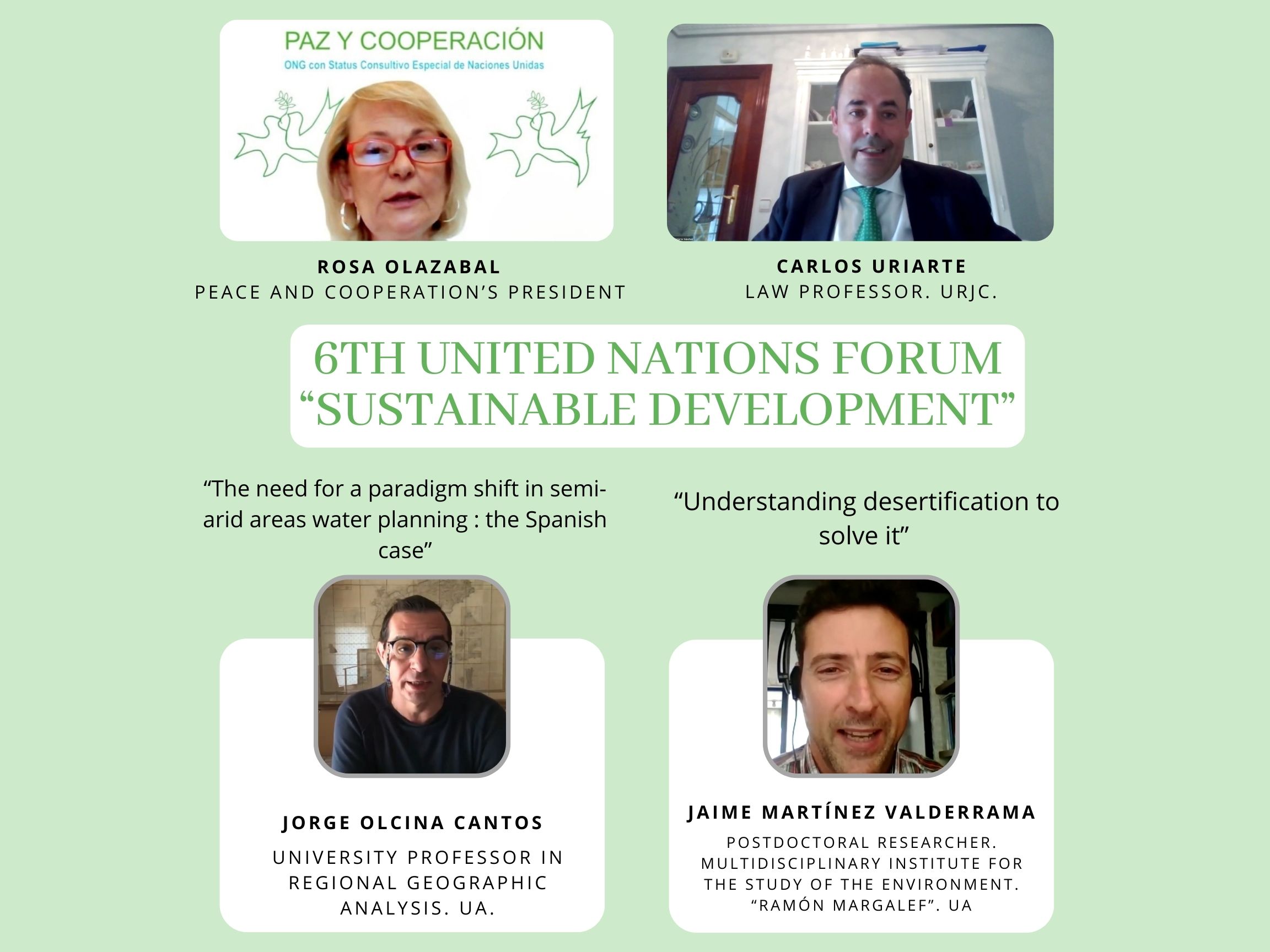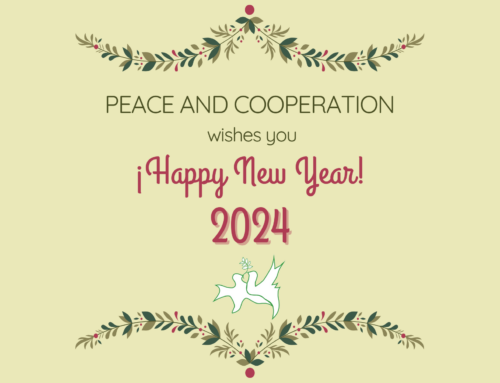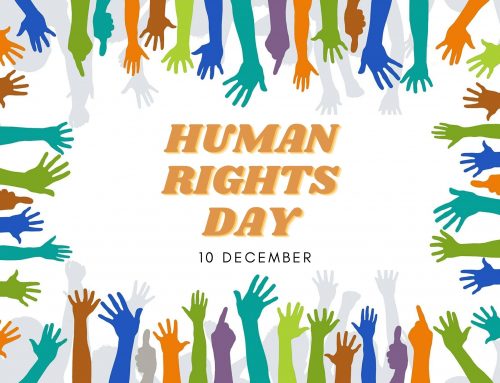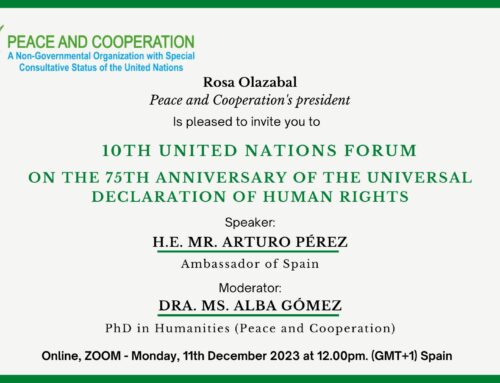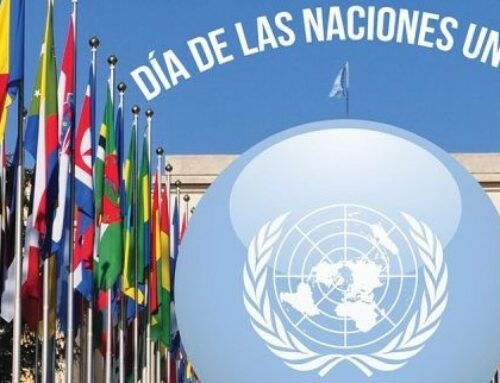The Foundation Peace and Cooperation conducted on last 19th april the 6th United Nations Forum online about sustainable development. Two experts on the subject attended the event : Mr Jorge Olcina Cantos, university professor in regional geographic analysis at the University of Alicante and Mr Jaime Martinez Valderrama, postdoctoral researcher in the Multidisciplinary Institute for the Study of the Environment “Ramón Margalef” at the University of Alicante.
The Forum began with a speech of Peace and Cooperation’s president. She welcomed the listeners, introduced the well-known experts attending the Forum and emphasised the importance of the subject dealt with.
She highlighted that at the United Nations’s general assembly on 25th september 2015, heads of state and heads of government of the world had passed a joint agreement, a new sustainable development agenda, setting general objectives to eradicate poverty, ensure prosperity for all and protect the planet. Every objective is linked to economic, social and environmental fields.
Mrs Rosa Olazábal Valle finished her speech insisting the forum focuses on the environmental field. Indeed, Peace and Cooperation supports campaigns to protect the environment in accordance with sustainable development objectives.
Speaking on “the need for a paradigm shift in water planning in semi-arid areas”, university professor Jorge Olcina Cantos emphasised key aspects of the environment and water.
He said that the planet will be conditioned in the coming years by the process of global warming we are experiencing and can not prevent. This will lead, and is already leading, to a series of temperatures and water issues as well as increasingly excessive changes and alterations such as floods, natural environments erosion phenomena and droughts.
The importance of water and the need to change the planning system was also highlighted by Jorge Olcina Cantos. In Spain, there are two traditional ways to carry out water planning : from the offer, with the construction of water tanks and transfers, and the exploitation of aquifers ; and from demand, through campaigns to save water, the improvement of water supply systems, more efficient use of sewage… . Water planning is required in the context of the 21st century to reach the aims of sustainability and adaptation to climate change.
The university professor pointed out that there are conflicts between many nations over water, highlighting the importance of sustainable development objectives.
Finally, he highlighted current water issues, emphasising that sustainability is an indissoluble aspect of water planning and that we also need to integrate climate change into it. Water planning must be based on “soft” measures, to allow the reduction of floods and droughts, and take into account scientific and technical criteria.
Researcher Jaime Martínez Valderrama spoke about “understanding desertification in order to solve it”, stressing that it is a process in which human activity is involved. Indeed, according to the 1994 United Nations definition, desertification is the degradation that occurs in a given type of arid zone due to human activities and climatic conditions.
He also explained that the excess of grazing livestock in some areas as well as the aquifers depletion, due to their abusive exploitation for land irrigation, are two causes of desertification. In this case, it is very difficult to return to the initial point. The problem of desertification affects 40% of the earth’s surface. Desertification is not produced by external factors but is the result of inadequate human activities in arid regions and climatic variations.
The 1994 United Nations Convention to Combat Desertification mandates each country to implement a plan to combat desertification. However, this has not been taken into account: the studies do not result in concrete action plans, with planning and timetable. Moreover, while some areas are being reforested, the phenomenon of desertification is spreading to other areas and is not being stemmed.
The most reasonable proposal is neutrality, without destroying lands. This global proposal has an influence in all countries and not only in arid zones. If there is land degradation, it must be compensated. We must manage agriculture as sustainably as possible, based on the opinion of local people. Thus, approaches must be coordinated and harmonised.
The President of Peace and Cooperation closed the 6th United Nations Forum by thanking the experts for their excellent interventions and the listeners for their involvement, with the desire to count on them again at the upcoming conferences.
Article published in: Galicia Digital

